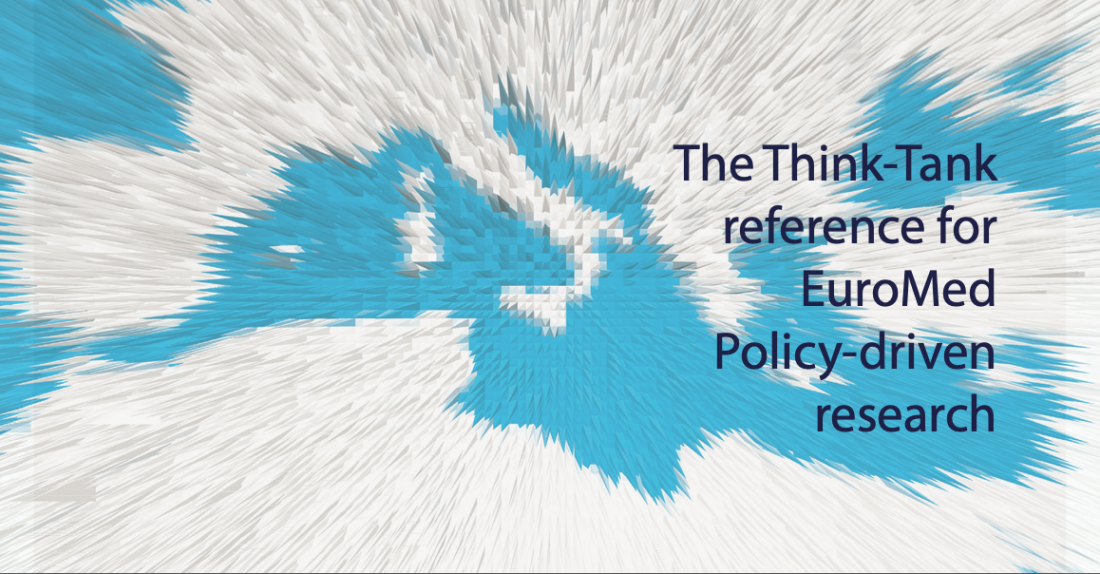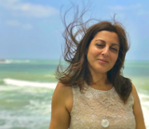WEF-CAP French partner FEMISE reaching out to policy makers

 Maryse Louis, General Manager of FEMISE
Maryse Louis, General Manager of FEMISE
In this issue of "Behind the scenes" we have interviewed Dr Maryse Louis, General Manager of FEMISE, Forum Euroméditerranéen des Instituts de Sciences Économiques (the Euro-Mediterranean Forum of Institutes of Economic Sciences), whose main role in the WEF-CAP project is to reach out to policy makers through different tools, with as much outputs of the projects as possible.
Maryse, tell us more about your organization
FEMISE, Forum Euroméditerranéen des Instituts de Sciences Économiques (the Euro-Mediterranean Forum of Institutes of Economic Sciences), is a Euromed network established in Marseille, France in June 2005 as an NGO (under the French Law of 1901), following 8 years of activities as an EU –funded project. Today, the network gathers more than 100 members of economic research institutes from the North and South of the Mediterranean with the obective to promote dialogue on economic and social policies, and deepen co-operation between the two shores of the Mediterranean for their mutual benefit. To accomplish this main objective, the specific objectives of FEMISE are:
1. To build up and reinforce the capacity to conduct multi-disciplinary research;
2. To reinforce dialogue between the public, private, national and multilateral institutes, a dialogue based on the knowledge of these institutes;
3. To develop an efficient strategy for the dissemination and deployment of research results;
4. To forge and conclude partnerships with other institutes, bodies and establishments to work towards the accomplishment of the Association’s objective.
FEMISE research themes are multi-disciplinary covering a variety of issues, mainly: Trade integration, Climate Change and environment, labour markets, migration and inclusiveness, private sector, innovation and entrepreneurship.
What is your role in your organization?
General Manager of FEMISE
What is your role in the WEF-CAP project, what are you currently working on?
As an EU-Med network that is very much concerned with dialogue, our main role in the WEF-CAP project is to reach out to policy makers through different tools, with as much outputs of the projects as possible. Through the WP (5), we will be mainstreaming the WEF Nexus capitalisation outcomes through a variety of products with the aim to produce an evident-based policy development. Practically, we will be producing 3 policy briefs and 3 white papers from the outputs of the other WPs (mainly 3 and 4) that is targeted for stakeholders and policy makers. Also believing in the importance of ownership to ensure impact and sustainability, we will involve all stakeholders in shaping up the final results of the project, through a wide “public consultation” where results will be ‘tested’ and first hand feedback and suggestions collected. Last but not least, we have a number of various types of events that are lined-up: from network cafes organised at the national levels to capitalisation nights, to clustering TEDx events, to multi-stakeholders capitalisation conferences, ensuring that each event is tailor-made to its audience from entrepreneurs, clusters, policy makers. This will all be leading to the final event of the whole project.
What are your expectations in the WEF-CAP project? What do you think will have major impact for the Mediterranean community?
This project has great potentials and is unique in the sense that it brings together and put under the spotlight the various efforts that has been put in place in the Med region (and which are often either sporadic, forgotten or not properly used) in the WEF Nexus sector. The project will collect Best practices from various sources and streamline them to the use of stakeholders and policy makers with the aim to make them replicable across the region. A concrete example would be that a successful WEF project implemented in Spain or Greece that saves water, produces food with efficient energy, can be replicated in Tunisia or Egypt. The WEF nexus topic cannot be more timely with the Mediterranean region suffering from water scarcity, food insufficiency and energy inefficiency that have been exasperated with the impact of the COVID-19 and leading to a fast exploiting of the scarce natural resources. As policy makers are now more open to suggestions and best practices, I am very optimistic about the impact that this project will have.
What are your interests outside the project and your work?
I love reading (Arabic, French and English) and walking my dog. I also enjoy going for Mediterranean holidays exploring different sides of the Mediterranean Sea. So far I have done maybe 23 Mediterranean cities: Alexandria, Marsa-Matrouh (hundreds of times it’s my home Egypt!); Beirut (Lebanon); Tunis (Tunisia); Tangier (Morocco); Monaco; Nice, Marseille (where I work, France); Paphos and Famagusta (Cyprus); Crete, Corfu, Kephalonia and Athens (Greece); Naples, Sicily, Salerno and Rome (Italy); Palma de Mallorca, Barcelona (Spain), Valetta (Malta); Antalya and Ouldeniz (Turkey)- so not more left to see…(50?)







